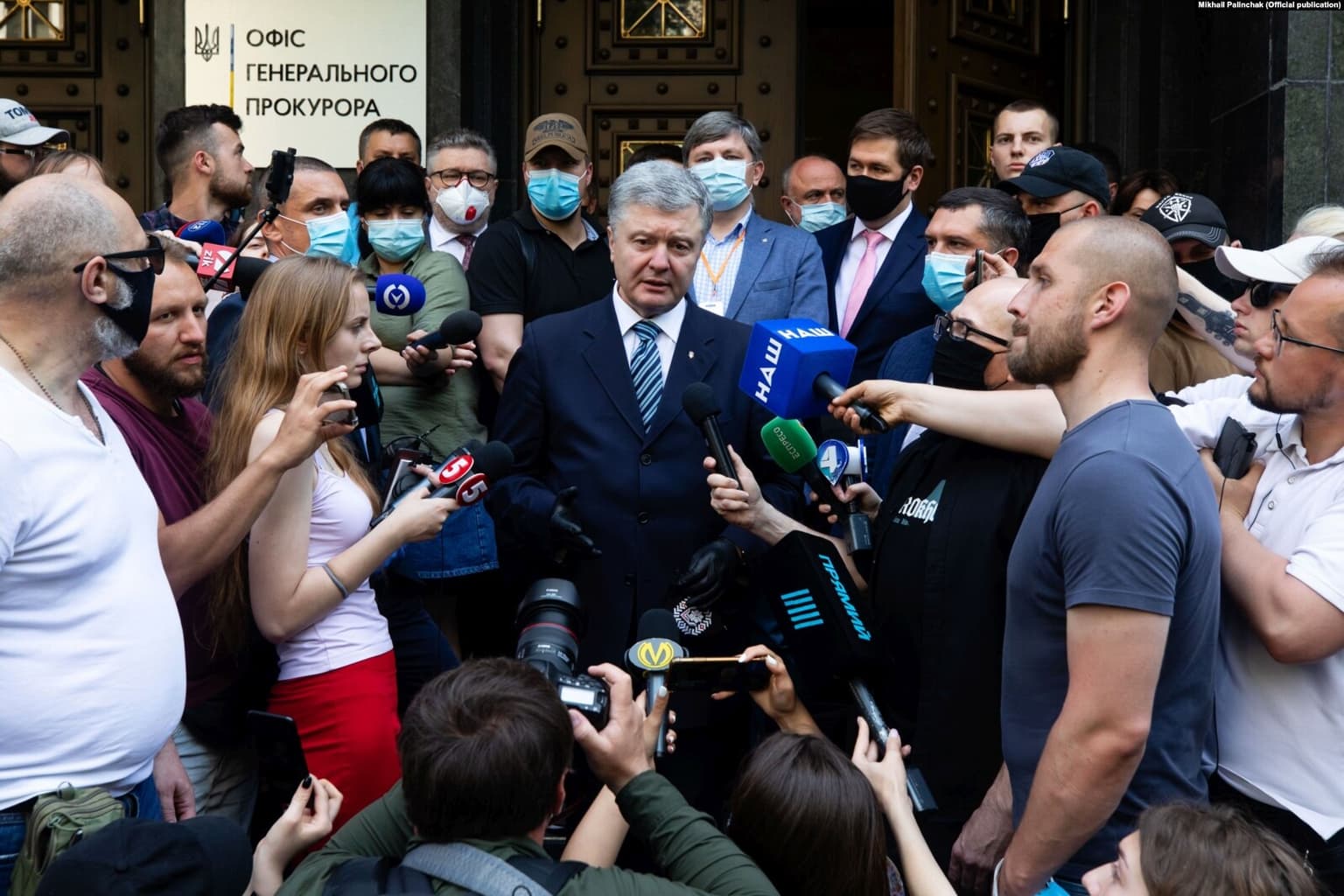Court seizes Poroshenko’s assets in treason case

Kyiv’s Pechersk Court issued a ruling on Jan. 6 to seize ex-President Petro Poroshenko’s assets.
Poroshenko was charged with treason on Dec. 20. He is accused of being involved in supplying coal to Ukrainian state-owned enterprises from Russian-occupied areas in the Donbas in 2014-2015. Poroshenko has denied wrongdoing and called the case a political vendetta.
Poroshenko, who is currently abroad, said on Jan. 6 that he was planning to return to Ukraine on Jan. 17 and use his right as a member of parliament to have an official meeting with Prosecutor General Iryna Venediktova, as cited by the ex-president's European Solidarity party.
According to the Prosecutor General's Office, the court ruled to seize Poroshenko's real estate, corporate rights and other assets.
In December several media outlets reported, citing the Prosecutor General’s Office, that prosecutors were seeking to arrest Poroshenko in the treason case and ask for Hr 1 billion ($37 million) bail.
Ukrinform, Ukrainska Pravda and other Ukrainian media also reported, citing anonymous sources, that Kyiv’s Pechersk District Court had approved prosecutors’ motion to detain Poroshenko and bring him to a court for an arrest hearing.
Iryna Gerashchenko, head of the European Solidarity's faction in parliament, said on Facebook on Jan. 6 that the seizure of Poroshenko’s assets would make it more difficult for him to collect the money to pay the bail.
“(President Volodymyr) Zelensky is obsessed with arresting the leader of the opposition,” Gerashchenko said. “This is his idée fixe… The time of (ex-President Viktor) Yanukovych is back. But this lawlessness will also end badly for the (incumbent) authorities.”
The President's Office did not respond to requests for comment.
From September through November, the Security Service of Ukraine (SBU) and the State Investigation Bureau leveled charges of treason and aiding terrorists against businessman Serhiy Kuzyara, pro-Kremlin lawmaker Viktor Medvedchuk and Volodymyr Demchyshyn, who was energy minister in 2014-2016 under Poroshenko, as part of the same coal supply case.
Medvedchuk allegedly negotiated the coal supplies with Russia and its proxies, as well as with Poroshenko’s administration, according to the investigators. Medvedchuk denied wrongdoing.
Ex-lawmaker Oleksandr Onyshchenko, a former ally of Poroshenko, claimed in 2016 that the former president’s top associate and lawmaker Ihor Kononenko had been getting $20 per ton from coal supplies coming from the Russian-occupied Donbas. Kononenko denied the accusations.
Dozens of investigations have been opened against Poroshenko since his successor, Zelensky came to power in 2019. However, he has so far been charged in only two of them.
Apart from the treason case, Poroshenko was charged in June 2020 with abusing his power by appointing Serhiy Semochko as a deputy head of the Foreign Intelligence Service in violation of procedure. Since then, the case has seen no progress. Poroshenko denied the allegations.










